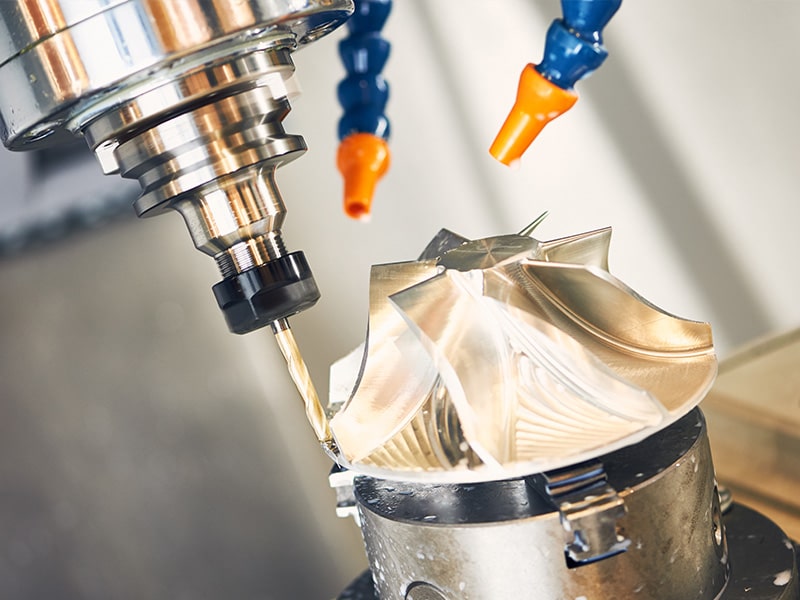CNC Machining Services: A Revolution in Precision Manufacturing
CNC Machining Services: A Revolution in Precision Manufacturing
Blog Article
CNC machining is one of the most innovative technologies of contemporary manufacturing. It has changed the fundamental way companies make components and parts that offer a degree of accuracy, precision, and versatility that is unmatched by traditional methods. CNC machining employs computerized control as well as machinery to complete tasks such as cutting, drilling, milling, or grinding on materials ranging from plastics and metals, to wood and composites. By automating the manufacturing process, CNC machining eliminates many of the errors and inconsistencies related to manual operation. This results in a machine which can create highly precise components at faster speeds as well as with more consistency, stimulating innovation in industries ranging such as aerospace and consumer electronics.
One of the main advantages of CNC machine is the ability to fabricate intricate and complex parts that are extremely precise. As opposed to manual machining, which precision depends largely on the skills of the operator CNC machines adhere to programmed directions with precision. The digital directions, which are typically generated by CAD (Computer-Aided Design) software, allow companies to create parts that have tolerances as tight as a tiny micron. This level of precision is essential in areas such as aerospace and medical device manufacturing, where the smallest deviation can compromise the performance or safety of a product. By using CNC machined parts, producers can be sure that their product has the correct specifications and reduces chances of failure and the necessity of costly overhauls.
The effectiveness of CNC processing is yet another major aspect in its broad adoption. Traditional machining methods require experts to manage the machine, alter settings, and change equipment for every operation. It is not only time-consuming but also prone to human error. CNC machining, on side, however, allows for the automation of these tasks, allowing machines to operate continuously and with minimal supervision. After a program has been set and the machine has been supplied with the necessary material the machine can run multiple operations without interruption, drastically cutting down on production time. CNC machines are also capable working 24/7, making them perfect for big production runs. The efficiency of CNC machines allows companies to meet deadlines, increase their output, and reduce labor costs as well as maintain high-quality standards.
CNC machining's versatility is another reason it has become the foundation of modern manufacturing. It can work with a wide range of materials, from heavy metals such a titanium or stainless steel to softer wood and plastics. It is therefore suitable for making parts that can be used in a variety of industries, which include aerospace, automotive electronic, medical and consumer products. Furthermore, CNC machines can perform multiple operations including cutting, milling, drilling, engraving, and even 3D contouring, all inside a single set-up. The multi-functionality of CNC machines eliminates the need to have multiple machines as well as part transfers, thereby increasing the efficiency. Whether manufacturing a prototype or producing huge batches of products, CNC machining offers the versatility to satisfy a range of demands for manufacturing. To receive extra information please go to https://www.premiumparts.com/services/cnc-machining
CNC machining is also known for its versatility in terms what materials it's able handle. From aluminum, steel, and titanium, to plastics, wood, and even composites, CNC machines can utilize a broad range of different materials in order to make parts that can be used in a variety of applications. This makes CNC machines suitable for a wide range of sectors that have distinct needs for the materials. In the case of medical, for instance, this industry often requires parts made with biocompatible material like titanium. The automotive sector uses durable metallics such as steel to make engine components. Whatever the metal, CNC machines can deliver accurate cuts with consistent results, ensuring that the final product meets the performance requirements and lasts specifications.
Another obstacle in CNC machining is in the programing and setting of machines. Although CNC machines remove a lot all manual labor with manufacturing but they need skilled technicians who can create and enter the required programs. These technicians must have expertise in CAD/CAM (Computer-Aided Design/Computer-Aided Manufacturing) software and understand the specific machining requirements of each project. Unintentional programming mistakes can cause defective parts or materials being wasted, as well as delays in the operation of the machine. In addition, initial set-up of the CNC machine may be lengthy, especially with complex projects that require many tools or procedures. Once the machine is correctly programed and setup the machine can create parts with remarkable speed and accuracy, minimizing the potential for error-prone runs in the future.